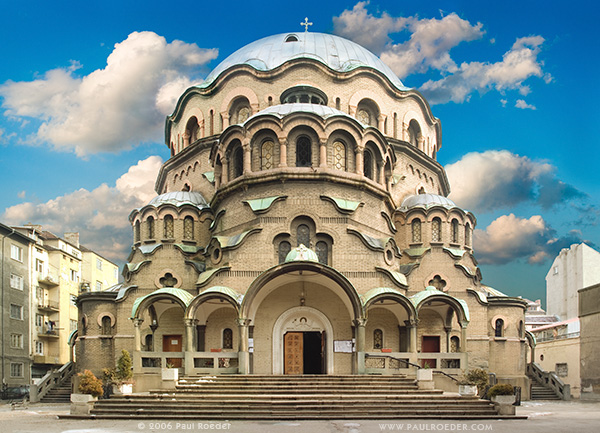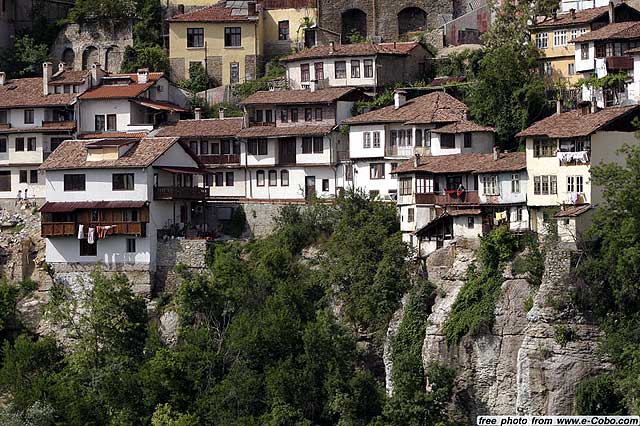Why History is Important for Buying a Property in Bulgaria
- on 12.02.08
- Bulgarian properties articles
- No Comments
Wise property-buyers seek to understand the story of the area they invest in. There are many good guides to Bulgarian history, some of which are listed under ‘Further Reading’, p.216. But why is history important to property-buyers?
Apart from increasing the enjoyment of a place, history can help explain why Bulgarian property is such a good investment today and help in deciding where in the country to buy.
The end and flow of many peoples and empires have left their mark on the Bulgarian territories. Ancient and medieval Bulgaria saw flowering civilisations of great sophistication. Bulgarians, Slavs, the Thracian and Roman empires each left their mark and created the rich tapestry that attracts tourists and property-buyers today. Property-buyers seek the works of nature – in the mountains and by the sea – as well as the works of man, such as the ancient city of Veliko TurnovoΒ or Cherven in the Rousse region.

The basic order of events is that the first civilisations were the Thracians, who also were influenced by the Ancient Greeks and Byzantines next door. Spartacus, the famous slave gladiator turned rebel leader, was born in a village that is in modern Bulgaria. Alexander the Great’s father founded the city of Plovdiv, originally named Philipopolis.
Greek colonists settled along the Black Sea coast in towns like Sozopol and Nessebar – two beautiful historic towns on a peninsula and both property hotspots. The Romans set up fortresses along the Danube for the northern defensive boundary of the empire. By the 5th century the Romans had left, defeated, and two centuries later the first Bulgarian kingdom on this land was created, which was eventually subsumed by the larger empire of Byzantium next door.
Two centuries later Bulgaria was Orthodox Christian and had developed a complex culture of arts and literature, including the Cyrillic alphabet. This alphabet is now used well beyond Bulgaria’s borders. Throughout the Orthodox Slavic world including in Russia. The second Bulgarian kingdom emerged around the 12th century – about 100 years after the Norman invasion of England. The second kingdom established its capital in the fortified city of Veliko Turnovo, whose ancient citadel forms the centrepiece of the town and attracts so many tourists and property investors today. This kingdom lasted until the invasions of Turkish Ottoman armies from the east in the 14th century. With the fall of Constantinople in 1453, the fate of the Orthodox Christians was sealed and Bulgaria fell under the yoke of the Ottoman Empire for the next 500 years.
This history has several implications for modern property-buyers. The aristocratic practice, found throughout western Europe, of building stately homes, castles and chateaux never happened in Bulgaria. There simply was no Christian aristocracy in Bulgaria under the Ottomans, and rich merchants did exist but they tended to build houses in towns to display their wealth. It is therefore unusual to find isolated houses standing alone in the countryside; rural properties tend nearly always to be with in villages or smaller ham lets. This ls not to say they do not enjoy large gardens and outside space, but the building isolated houses – like a rectory or manor house in England – assumes a level of security that did not exist in the 19th-century Balkans. There is another aspect of the country which today attracts many people to the region – space.
The Ottoman Empire did not follow the pattern of industrialisation that subsequently led to the rapid growth of cities and populations in western Europe. Bulgaria remained a predominantly rural land. Furthermore, the numerous mountains also did not encourage dense populations. Since Bulgaria remained a rural, agricultural country the population stayed relatively small, and today the country provides a wonderful landscape with a sense of space that is not easy to find in western Europe, and especially not in the UK.

The Russian army finally liberated Bulgaria from the Ottoman Empire in 1878. A Bulgarian constitution was established and a German prince was appointed as a constitutional monarch. Bulgaria was back in the European fold. In both world wars the country backed the Germans – in the Second, more out economic necessity than any disposition towards Nazism. After the Second World War the country was signed over to the Soviet Union at Yalta along with the rest of eastern Europe. Thus 50 years of Communism ensued. From 1945 to 1989 it was not possible to fly to and buy a second home in Bulgaria, or to settle there.
While people were moving to Spain, France and Italy in droves to buy their second homes, Bulgaria was a less well-known package-holiday destination. The low prices for property are partially a result of the property market never having been subjected to the global marketplace, and it is still finding its correct position in the European property market. Now the lifting of the Iron Curtain has suddenly exposed one of the most beautiful countries in Europe to the outside world, which is voting with its feet-or rather with its pounds and euros – and buying property all over the country.
Leave a Reply
You must be logged in to post a comment.